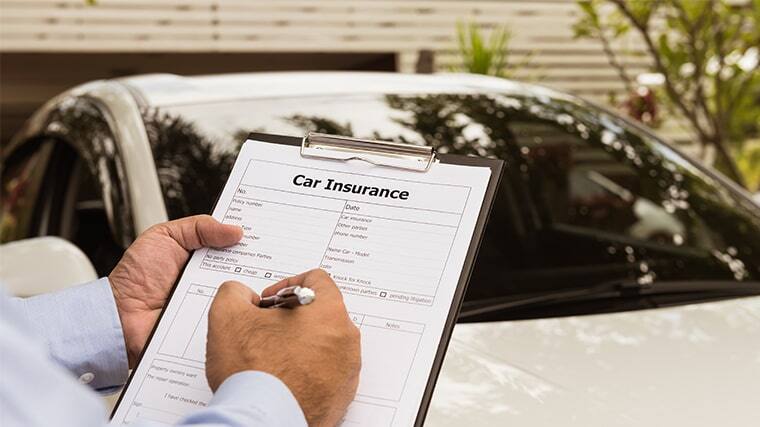Over the span of 2016 to 2021, Savannah witnessed 51,925 reported vehicle accidents within its city limits, with 801 of these incidents leading to fatalities or severe injuries.
This alarming data underscores the critical importance of addressing road safety. Delving into the details, we unravel the impact of these incidents and explore potential measures to enhance the safety landscape for both residents and visitors in Savannah.
Life after a car accident isn’t just about healing physically and emotionally; it’s also about rebuilding financially.
The aftermath of these incidents can bring unexpected challenges, from medical bills to vehicle repair costs. In this context, exploring effective financial recovery strategies becomes crucial.
From understanding insurance claims to getting in touch with a personal injury attorney in Savannah you can talk to, we’ll delve into practical steps that can help individuals recover and regain financial stability after the turbulent experience of a car accident.
Contact your Insurance Company Promptly
 One of the first and most crucial steps to take after a car accident is contacting your insurance company. By informing them about the incident right away, you ensure that they have all the necessary details to start processing your claim promptly.
One of the first and most crucial steps to take after a car accident is contacting your insurance company. By informing them about the incident right away, you ensure that they have all the necessary details to start processing your claim promptly.
It’s important to provide accurate information about the accident and any injuries sustained so that they can proceed with settling your claim quickly.
Understand your Insurance Coverage
To effectively handle the financial aspects of a car accident, it’s important to understand your insurance coverage beforehand.
Familiarize yourself with the terms and conditions stated in your policy regarding liability coverage, comprehensive coverage, medical payments coverage, and uninsured/underinsured motorist coverage.
This knowledge will help you determine what expenses are covered by your policy and what may need additional attention.
Document All Costs
Keeping detailed records of all expenses related to the car accident is essential for claiming compensation from insurance companies or any other parties involved.
Make sure to retain copies of medical bills, repair estimates or bills for vehicle damages, rental car receipts if applicable, prescription receipts, invoices for home services undertaken due to injuries received during the accident (e.g., cleaning services), and any other relevant documents related to expenses incurred because of the incident.
Seek Legal Advice
In some cases, it may be beneficial to seek legal advice following a car accident. This is particularly true if there are concerns about fault, the adequacy of insurance coverage, or if you have sustained severe injuries.
An experienced personal injury attorney can assess your case, protect your rights, and help negotiate with relevant parties to ensure fair compensation for medical expenses, lost wages, and other damages.
Consider a Settlement or Negotiation
 If all parties involved in the accident agree that liability and insurance coverage are adequate, you may consider seeking a settlement or negotiation outside of court.
If all parties involved in the accident agree that liability and insurance coverage are adequate, you may consider seeking a settlement or negotiation outside of court.
Settling through negotiations can expedite the financial recovery process and save on legal fees. However, it’s important to consult with legal professionals to determine whether this option is appropriate for your specific circumstances.
Explore Additional Resources for Compensation
Depending on the severity of the accident and resulting injuries or damages, there may be additional resources available for financial assistance.
For example, some states have victim compensation programs that provide monetary support to individuals who have suffered injury or loss due to crime-related incidents like car accidents. Research whether such resources exist in your area and determine how they can help in your financial recovery journey.
Track the Time Missed from Work
 After a car accident, you may need time off work to recover from injuries or attend medical appointments related to the accident.
After a car accident, you may need time off work to recover from injuries or attend medical appointments related to the accident.
It is important to keep track of all missed days along with any documentation provided by healthcare providers supporting these absences. This information will be crucial when claiming lost wages during negotiations with insurance companies or when filing a personal injury lawsuit.
Budget and Prioritize Expenses
During the financial recovery process after a car accident, it’s essential to review your budget and prioritize expenses wisely.
Focus on allocating funds toward essential costs such as medical bills and vehicle repairs/maintenance first before considering non-essential expenditures.
Conclusion
Dealing with the aftermath of a car accident can be stressful enough without adding financial concerns into the mix. By following these strategies for managing your finances after an accident, you can navigate through the recovery process with more confidence and ease. Remember to consult professionals such as insurance agents and personal injury lawyers to ensure you fully understand your options and rights throughout the journey to financial recovery.





